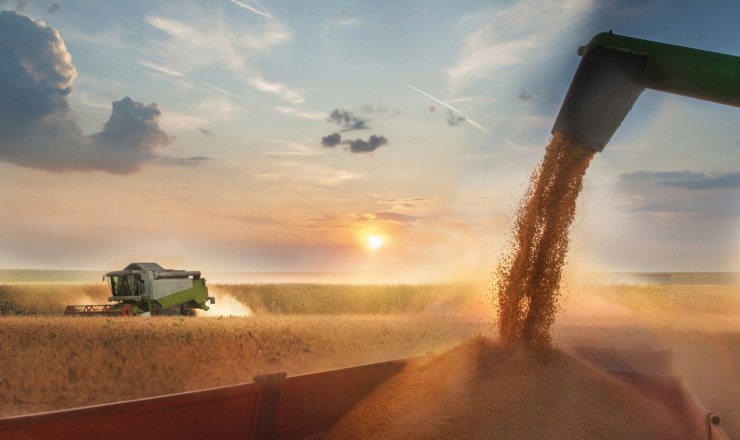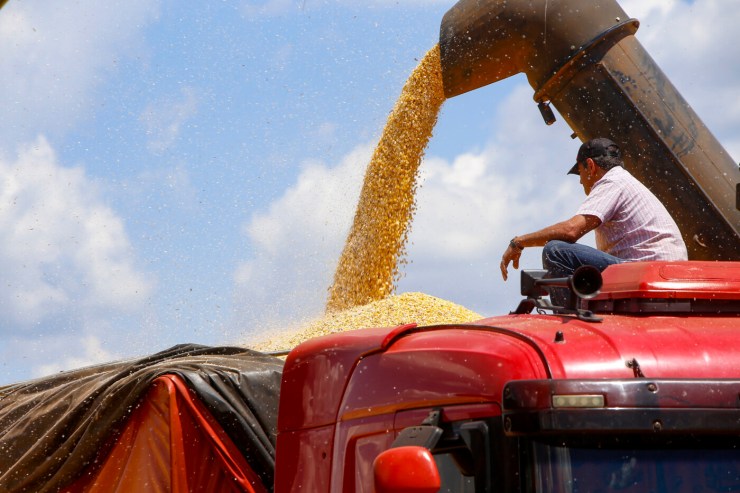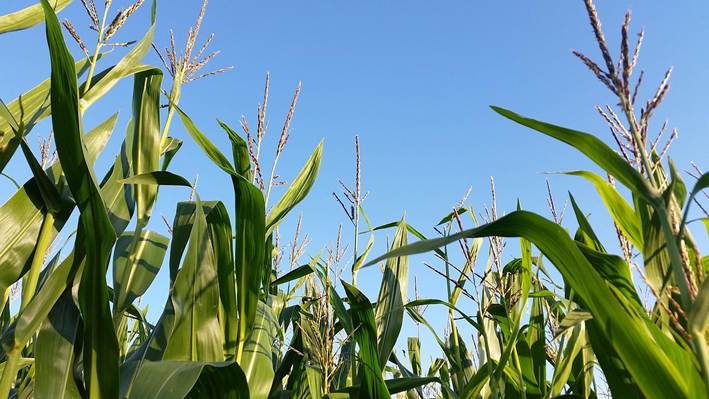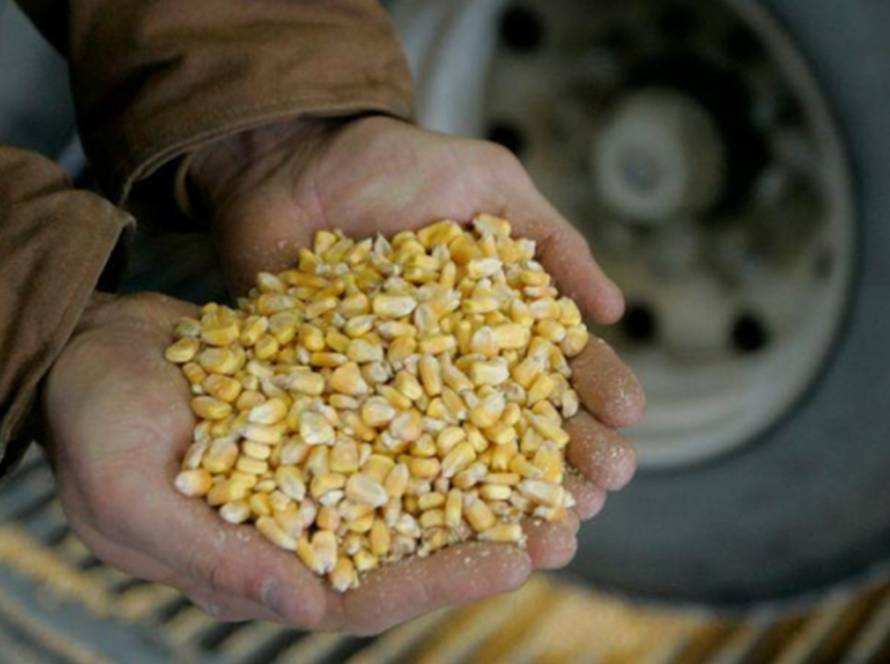Coamo has begun construction of one of Brazil's largest biorefineries in Campo Mourão, Paraná, with an estimated capacity to process 1,700 tons of corn per day and also include a 30 MW (megawatt) cogeneration system. With an investment of over R$1.6 billion, the project represents more than an expansion of the cooperative's agroindustrial operations: it represents a new chapter in its strategy of vertical production integration, product diversification, and entry into the clean energy market.
The venture marks Coamo's definitive entry into the biofuels sector, focusing on the production of ethanol from corn, DDGS (distillers' dried grains with solubles) for animal feed, and corn oil. "We are entering a market that is booming worldwide: renewable fuels. From a strategic perspective, I see it as a very positive move for Coamo," says Executive President Airton Galinari, reinforcing that the venture meets environmental requirements and global decarbonization trends. "Corn ethanol production is part of the process of replacing fossil fuels, contributing to reducing emissions and expanding the use of bioenergy in the country," he emphasizes.
The plant will be supplied with raw materials sourced from the cooperative members themselves, strengthening the link between agricultural production, value-added products, and industrial innovation. Galinari emphasizes that the cooperative will continue to use corn for feed, but will also develop a new product for formulating these feeds and for direct sale.

Coamo CEO Airton Galinari: "We will crush 600,000 tons of corn per year, producing ethanol, bran, and corn oil. It's an industry that adds value."
The new industrial plant will be the first in Paraná to produce ethanol using corn as a feedstock. Scheduled to open in the second half of 2026, the plant will have the capacity to produce 750 cubic meters of hydrous ethanol per day, 510 tons per day of DDGS, a byproduct widely used in the formulation of feed for cattle, swine, and poultry, and approximately 37.4 tons per day of corn oil, representing 7 to 8% of processed feedstock.
The unit is expected to consume approximately 600,000 tons of corn per year, equivalent to 10 million bags, representing approximately 20% of the cooperative's annual volume. "We will crush 600,000 tons of corn per year, producing ethanol, bran, and corn oil. It's a value-added industry. We're no longer just selling a grain, but transforming this corn into biofuel and high-protein bran," emphasizes the CEO.
The structure will have four silos of 10 thousand tons each for corn storage, a reception capacity of 900 tons per hour, 72 thousand square meters of built area and a static storage capacity of 20 thousand tons of DDGS and 36 thousand cubic meters of ethanol.
Job creation
In addition to the direct impact on the cooperative's revenue, the project will influence the regional economy by generating 2,200 direct jobs during the construction of the new industrial plant, and another 250 jobs once it is in operation, streamlining the supply chain and increasing the value of corn produced in the states of Mato Grosso do Sul and Paraná.
Strategic installation
The decision to establish the unit in Campo Mourão meets strategic logistical and production criteria: proximity to areas with high second-crop corn productivity, a regular supply of raw materials, favorable infrastructure, and potential for connection to national and international ethanol markets. "We chose this location for logistical reasons and its proximity to our cooperative members. Commercially, Paraná also better positions us for consumer markets in the South," stated Galinari.
Self-sufficiency of the industrial complex
The new industrial unit will have its own thermoelectric plant, powered by forest biomass. The energy will be generated from eucalyptus firewood sourced from the cooperative's 5,000 hectares of reforestation, ensuring full power supply for the industrial complex, which also includes nine other factories.
With an installed capacity of 30 megawatts, the thermoelectric plant was designed to meet one of the largest demands of ethanol production: steam. "The ethanol industry requires a large volume of steam to distill alcohol and consumes a lot of firewood. Therefore, we will have a boiler designed to generate steam and drive turbines, which will produce the necessary 30 megawatts," explains Galinari.
After powering the turbines, the steam will be reused in the industrial stages, optimizing resources and reducing energy losses. "With this structure, the entire corn industry will be able to operate. The park will be self-sufficient and will have a renewable energy matrix, using reforested firewood," explains the executive. According to Galinari, the energy proposal aligns with sustainability on all fronts of the project. "In addition to producing ethanol, oil, and bran, the plant will also generate clean energy. This allows the entire complex to operate based on a renewable raw material," he reinforces.
Increasingly complete cooperative system
By integrating the agricultural chain into the renewable-based industrial model, Coamo is committed to consolidating an increasingly comprehensive cooperative system: from seeds to fuel, including animal feed and the circularity of byproducts. The new bioindustry connects to a future-oriented approach that combines productive efficiency, energy security, and rural protagonism.

This move is consistent with the cooperative's trajectory, which in recent decades has strengthened its presence in various agro-industrial segments—from wheat to soybeans, from storage to export. Entering the ethanol sector elevates Coamo to a new level of value-add and portfolio expansion, with the potential to open up new fronts in the bioenergy market.
The expectation is that, once consolidated, the unit can serve as a model for replication in other areas of the cooperative's operations, taking advantage of the existing production base and the integrated logistics structure that Coamo has built over the last five decades.
The new plant isn't just a feat of engineering or a market decision. It's a symbol of the advancement of bioindustry in Brazilian cooperatives and a strategic step toward connecting grain production to an industrial model that responds to current challenges and anticipates future demands.
New investment
Coamo also plans to build a biodiesel plant in Paranaguá, on the coast of Paraná, with an estimated investment of R$1,500 million. The new facility will integrate the existing industrial complex in the region, which includes a soybean processing plant with a capacity of 2,000 tons per day. The project is still in the planning and feasibility study phase.
According to Galinari, the choice of Paranaguá is due to the availability of crude oil at the local plant. "At our other units, in Dourados and Campo Mourão, we use 100% of soybeans for refining and producing packaging oil, margarine, and shortening. In Paranaguá, the oil is crude and will be used for biodiesel production," he explains, emphasizing that only soybeans will be used in the fuel production. "We do not intend to use other oilseeds such as wheat or canola in the process," he adds.
Galinari highlights the market's growth potential. "With every additional 1% of biodiesel added to the diesel blend, the need for more industries grows. With the B20 target (20% of biodiesel in diesel) by 2030, demand for biodiesel will increase significantly," he projects.
Access, share, value! And be part of this story. Click here to access the digital version of Special Cooperativism.





